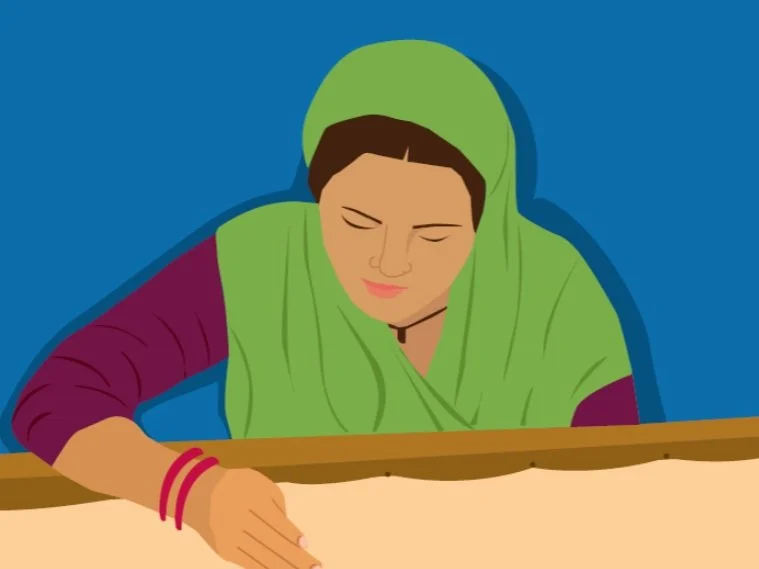
Photo: Home Net South Asia
Pakistan, Karachi
In Pakistan, almost all piece-rate home-based workers are employed in the textile and apparel sector.
These women workers who are a part of both global and domestic value chains perform tasks such as cropping loose threads, basic stitching, beadwork, packing and labelling; some also perform highly skilled tasks such as intricate beadwork and embroidery.
Homeworkers in Pakistan, as in other countries, face challenges such as low wages, irregular work, lack of bargaining power and collective voice and lack of social protection.
Home-Net Pakistan’s core focus within the Hidden Homeworker Project is on women informal workers in the garments, textile and leather clusters. These clusters are usually located in the peripheral areas of Karachi, also where women homeworkers reside.
These women, due to social and cultural norms, have little option but to take on home-based work.
HomeNet Pakistan supports these women through trainings and capacity building initiatives and strives to empower them by collectivising and telling them about their labour and human rights. They have also supported several homeworkers with digital literacy trainings and e-commerce skills. These workers are also learning to market and operate their micro enterprises on different online platforms to utilise their time in gaining productive skills.
HomeNet Pakistan has always been on the forefront for advocating rights of home-based workers. They have been actively working with the government on policy issues to recognise and protect the interests of homeworkers in Pakistan, calling on the government to extend the legislation protecting homeworkers in Sindh province to other parts of the country.
Resources
Check out our partner HomeNet Pakistan’s baseline survey, based on interviews with homeworkers in the apparel sector in Karachi.



